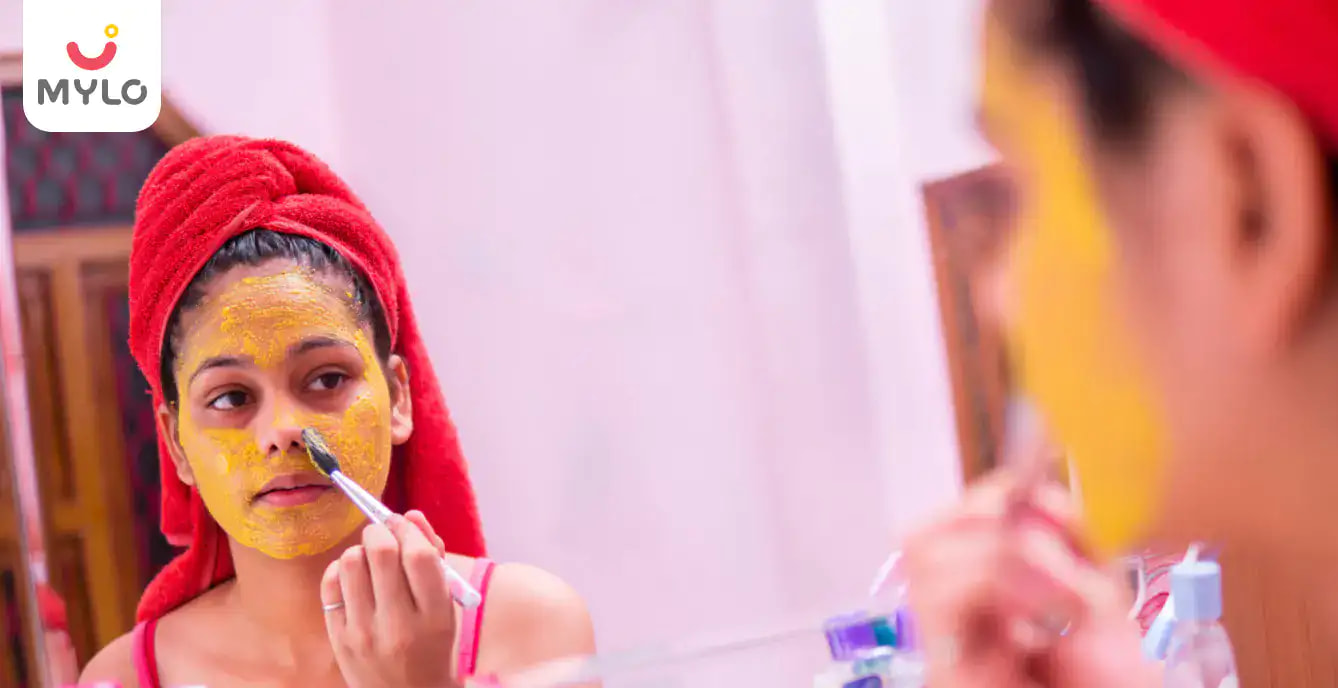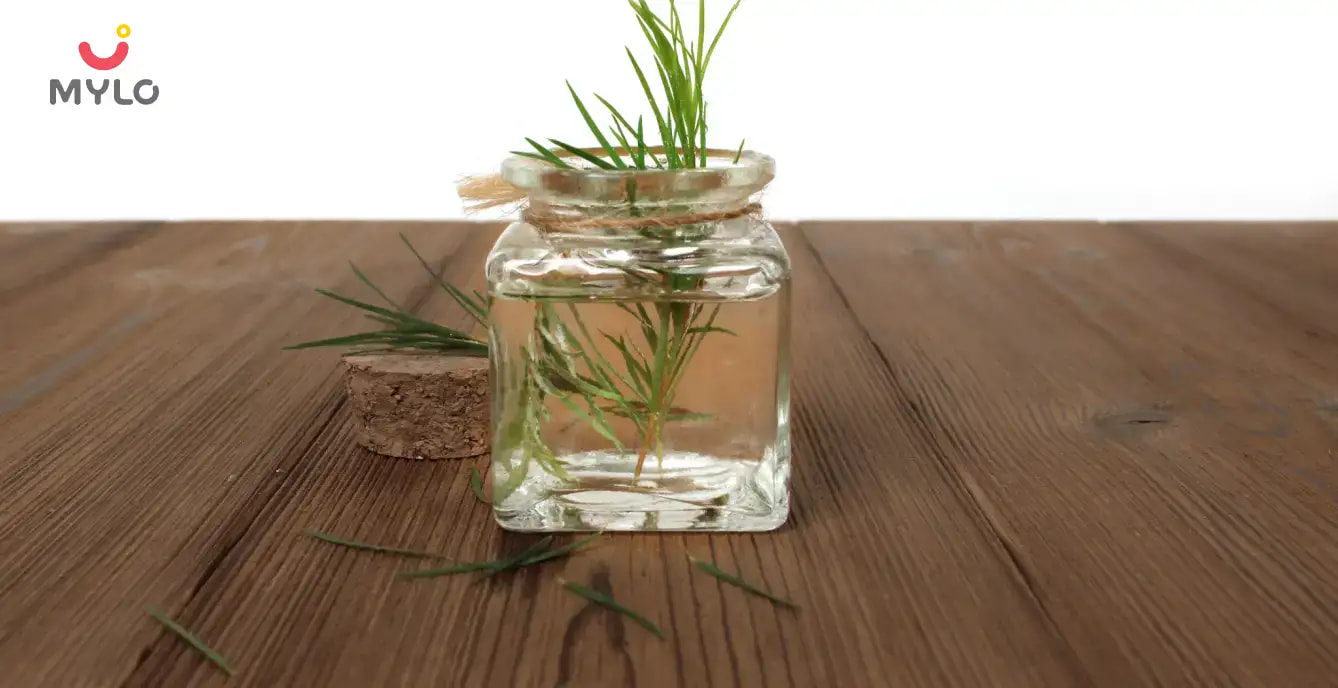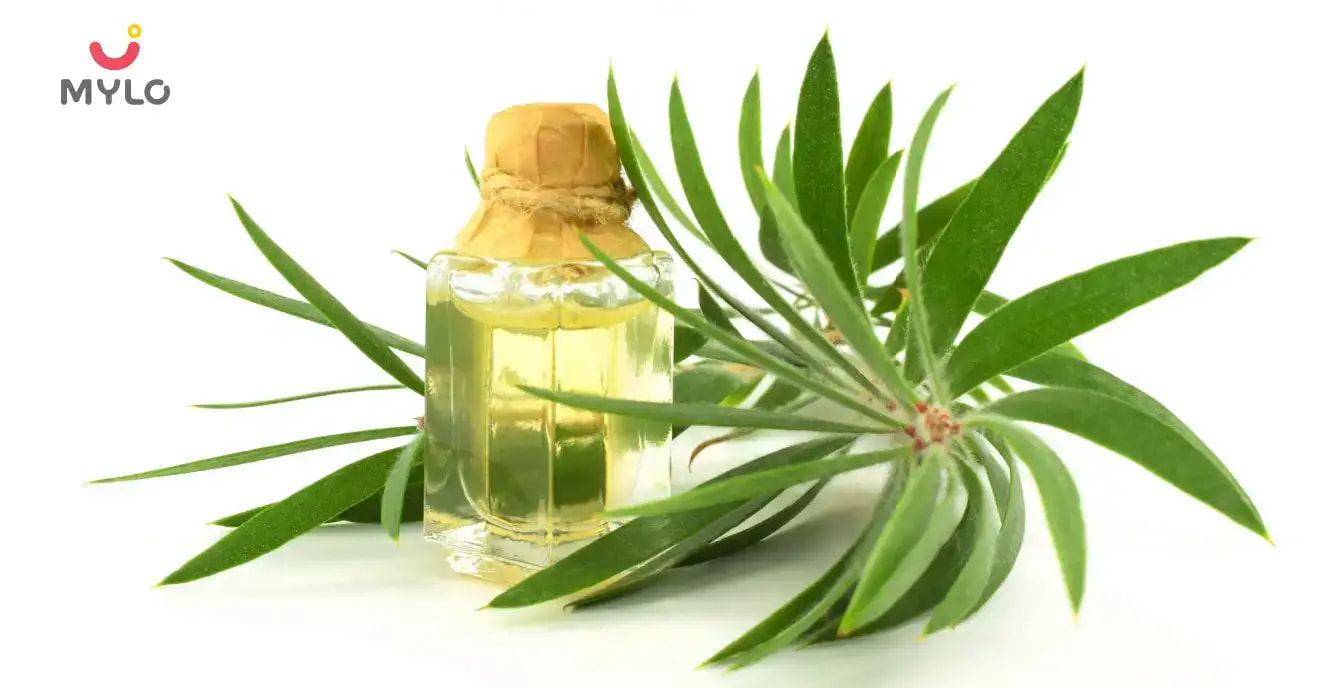Home

Top 5 Most Common Skin Care Myths Busted
In this Article

Pregnancy
Top 5 Most Common Skin Care Myths Busted
Updated on 7 November 2022
When it comes to the health of our skin, we naturally want to look and feel our best. Most people want radiant, luminous and clear skin. To achieve this, we often resort to a variety of products and techniques which are both processed and natural.
Almost all skin care products make similar extravagant claims, which makes it hard to choose the right skincare product. The skin is the largest visible organ in the body. Some people think it is easier to care for your skin, but many still follow outdated methods and believe in false information about skin care. This knowledge is passed on to future generations, who follow the same practice. It is difficult without studies or data to prove what is right and wrong.
The only way to truly know if the methods or claims are valid is by researching each company and its product's ingredients. We then turn to the internet for our answers. However, the internet also abounds with myths and misinformation since even experts have contrary assertions. There are many myths about skin care products.
The Top 5 Common Skin Care Myths are as follows:
Myth #1: Drinking water keeps your skin hydrated
This myth is somewhat popular on the ' beauty myth' list. The dermatologists are divided on this one. The ambiguity is about whether drinking more water at all will improve your skin. There are two studies when it comes to skin hydration. One review suggests that increased water consumption is connected to a more hydrated epidermis and the other one implies that drinking more water improves the skin's appearance. Beauty companies are not in a hurry to find research on the effectiveness of something that you can get for free since research on this topic is hard to come by. Though there is evidence that drinking water keeps skin hydrated, it is not a cure-all. So, drink up since cells require available moisture to function, and dehydration inhibits the process.
Myth #2: If your skin is oily, you do not need a moisturizer
This is the most common, intuitive misconception, and the chorus of critics is together to correct it. You need to moisturize your skin, even if it is oily since oily skin is prone to certain conditions, such as acne. Many people believe that if oily skin causes acne, they should moisturize less. However, the opposite is true. Some products used to treat acne dehydrate the skin, which we don't want. When the skin is dehydrated, it produces oil to compensate, making it oily. Excess oil can mix with dead skin cells to clog your pores which, in combination with bacteria, causes acne, blackheads, and blemishes. So, it is necessary to moisturize your skin even if it is oily. Experts recommend choosing a lighter moisturizer and applying a smaller amount but never skip it.
Myth #3: All natural products and ingredients are safe for your skin
Depending on your skin type, the effectiveness of natural products varies. It also depends on your problem and how you use the skincare product. Since our skin types are different, not all natural products or homemade skin remedies are safe. Some natural ingredients can cause redness or rashes on your skin, and not all products containing natural ingredients are completely natural. Make sure to do a patch test before to ensure that it suits your skin and will not lead to any serious side effects. So, choose your skin care products wisely.
Myth #4: Acne is caused by eating greasy food
Many people with acne have probably been advised not to consume oily food. However, no dietary changes are required since no links exist. The only food linked to acne formation was milk. However, consuming a diet full of whole foods can help prevent acne by reducing blood sugar levels in the body. Research suggests that your genetics, not your lifestyle, determines 81% of your risk for acne. However, studies suggest taking a daily probiotic may help mitigate acne.
Myth #5: More vitamins mean better results on your skin
This is as good as saying, " If something is good for your skin, put it on your face". Under the right conditions, skin care products containing collagen, vitamins and antioxidants are great for your skin. The problem with applying them directly onto your skin is that vitamins and antioxidants, including retinol or vitamin A, can degrade, oxidize, and become inactive before being absorbed by the skin.
While other factors make them unstable, many skincare companies claim the right formulation to make vitamins more useful in skin care products. But most studies show otherwise. Vitamins such as vitamin E can be quite effective in the right formula. We use vitamin E in a hydrating night cream, but we also use microbubble technology which keeps products against your skin to increase absorption and reduce degradation. Since the products contain vitamins and antioxidants as ingredients, don't assume that they will be helpful for your skin.
Some other popular skin care myths are as follows:
-
Exfoliation is not necessary
Overuse of abrasive exfoliants can indeed damage your skin, but finding products that are not abrasive is the solution. Be gentler and use the right products while exfoliating. Assuming that 500 million skin cells die on your face every day and that most of our skincare measures aim at making your skin look alive, it makes sense to exfoliate. Depending on your skin type and sensitivity, it is good to exfoliate twice or thrice a week at the start, preferably with a product suited to your skin.
-
Not washing your face regularly can cause acne and breakouts
Promoting hygiene is good for each person's health and also plays an important role in skincare. The major factors at play regarding acne and breakouts are the production of oil, accumulation of bacteria, inflammation and clogging of pores. Not washing your face does not help your problem, but it doesn't cause acne.
-
Sunscreen is not needed during winter
Many people use sunscreen only during summer. Though the ultraviolet rays that cause sunburn are not strong in winter, they are always present. Applying sunscreen throughout the year is important since UV rays can cause fine lines, wrinkles and skin hyperpigmentation. The UV rays can penetrate clouds; hence, wear sunscreen every day if you are planning to stay outdoors.
-
Collagen supplements are as good as oral supplements
Collagen comes from animals; collagen supplements can boost your body's natural supply. Collagen supplements do not work on the skin since collagen molecules are too big to penetrate the skin. It is believed widely that the skin can absorb only substances with a molecular weight of 500 Dalton's or less. But collagen molecules are big, and even if they were small, there is no evidence that they could bond with other collagen molecules to form a lattice that holds moisture in your skin.
-
There is one right way to get glowing skin
Washing your face, wearing sunscreen and using a moisturizer are certain basics of skincare that everyone should follow. Genetics plays a big role in the appearance of your skin, no matter how great your skincare routine is, affecting everything from acne to wrinkles. Just like people have different body types, people also have different skin types. Hence the same skincare routine may not be appropriate for everyone.
-
Sunscreen with higher SPF gives better protection
People consider SPF to be a measure of sunscreen's ability to protect against the sun's damaging effects, which is a myth. SPF measures how well a sunscreen will block UVB rays which cause skin tanning and burning. For example, sunscreen with SPF 30 implies that you can stay in the sun for 30 times longer without burning or tanning your skin. A sunscreen with an SPF of 15-30 is adequate for Indian skin. Look for a sunscreen which has a broad spectrum and provides protection against both UVA and UVB rays. While purchasing sunscreen, look up the label for a broad spectrum and ingredients such as zinc oxide, Mexoryl, etc., which offer protection against UVA rays that cause skin ageing.
-
Expensive skin care products work best
A skincare product should not be judged by its cost but by its ingredients and requirements. If your skin is oily, no product meant for normal skin will work for you, no matter how expensive. Daily skin care products such as cleansers, moisturizers, toners and sunscreen should be selected carefully. A product for summer might not work in winter, and you might need to change your products according to weather conditions. It is appropriate to consult a dermatologist who will assess your skin type, budget, requirements and working schedules and prescribe a feasible skincare routine.
-
Facials and microdermabrasion are good for your skin
Some studies show that facials do nothing more than make you feel good. They do nothing to improve your complexion or reduce wrinkles. Facials can damage your face if the aesthetician squeezes or rubs too hard. It would help if you massaged gently, so the elastin and collagen on your skin don't break down. The purpose of a good facial is to re-establish balance in the skin by cleansing, massage, exfoliation and masking. Fine grains of aluminum oxide are forced over the skin during microdermabrasion. This stimulates collagen production and helps in exfoliating dead skin. Another effective technique is to use an AHA product which acts as a great exfoliator and slows the ageing process. Facials and microdermabrasion should be used when your skin demands and should not be used regularly.
-
Lack of sleep causes dark circles
Your genes, rather than the amount of sleep you have recently, contribute to dark under-eye circles. A small study found that good sleepers had better skin overall; however, there is no evidence of the link between poor sleep and under-eye circles. Blue veins under the eyes may also contribute to dark circles. Allergies which cause chronic rubbing and hyperpigmentation due to older age also cause darkness under the eyes. A study also suggests poor sleepers were less satisfied with their appearance.
-
Vitamin D is only obtained from the sun
Although the sun gives us vitamin D, it comes with a risk of skin damage, including cancer. Since sun rays are harmful to the skin if directly exposed to them. You can also procure vitamin D from various food products, such as salmon or by taking a supplement. Also, people with darker complexion may not get enough vitamin D from the sun as they have increased concentrations of melanin in the skin.
-
It is better to pop a pimple
If you pop your pimple and pus oozes out, it can go deeper into your skin, which can lead to inflammation. It can spread under the skin. This leads to new pimples next to the previous ones. The simple solution is not to prick your face. You can always use a comedone extractor as an alternative to face picking. This is a beauty tool sold in most beauty stores that can remove your pimple without causing inflammation.
-
There is a product to eliminate fine lines and wrinkles
This is also a myth, as there is no magic bullet to remove wrinkles. Of course, there are products to reduce fine lines and wrinkles, but they can minimize them. The best preventative measures are to apply sunscreen and moisturizer.
-
Cleansing will keep your skin acne free
Acne is produced due to the pilosebaceous glands of your skin. Cleaning your oily and acne-prone skin is important to prevent breakouts adequately. Scrubbing your face frequently will only produce excess oil, which will cause breakouts. Using soaps for cleansing is harmful to acne-prone skin since it is more alkaline.
You may also like: https://mylofamily.com/article/5-natural-ways-to-get-glowing-skin-at-home-170986?
Conclusion
With many skincare products in the market with the newest and latest fix for great skin, it isn't easy to separate skin care products from fiction. Apart from using skin care products such as sunscreen and moisturizer, a lot of our skin's appearance is based on genetics. The best thing to do is observe what is working on your skin and not follow the latest trend. It is also important to consult a skin care professional for advice on products suitable for your skin. And the last important thing to remember is that we all are different, and so is our skin.



Written by
Vijay Kumar
Get baby's diet chart, and growth tips

Related Articles
Related Questions
Influenza and boostrix injection kisiko laga hai kya 8 month pregnancy me and q lagta hai ye plz reply me

Hai.... My last period was in feb 24. I tested in 40 th day morning 3:30 .. That is faint line .. I conculed mylo thz app also.... And I asked tha dr wait for 3 to 5 days ... Im also waiting ... Then I test today 4:15 test is sooooo faint ... And I feel in ma body no pregnancy symptoms. What can I do .

Baby kicks KB Marta hai Plz tell mi

PCOD kya hota hai

How to detect pcos

RECENTLY PUBLISHED ARTICLES
our most recent articles
Fears & Phobias
What are the Top Worries and Fears After Childbirth and How to Overcome Them
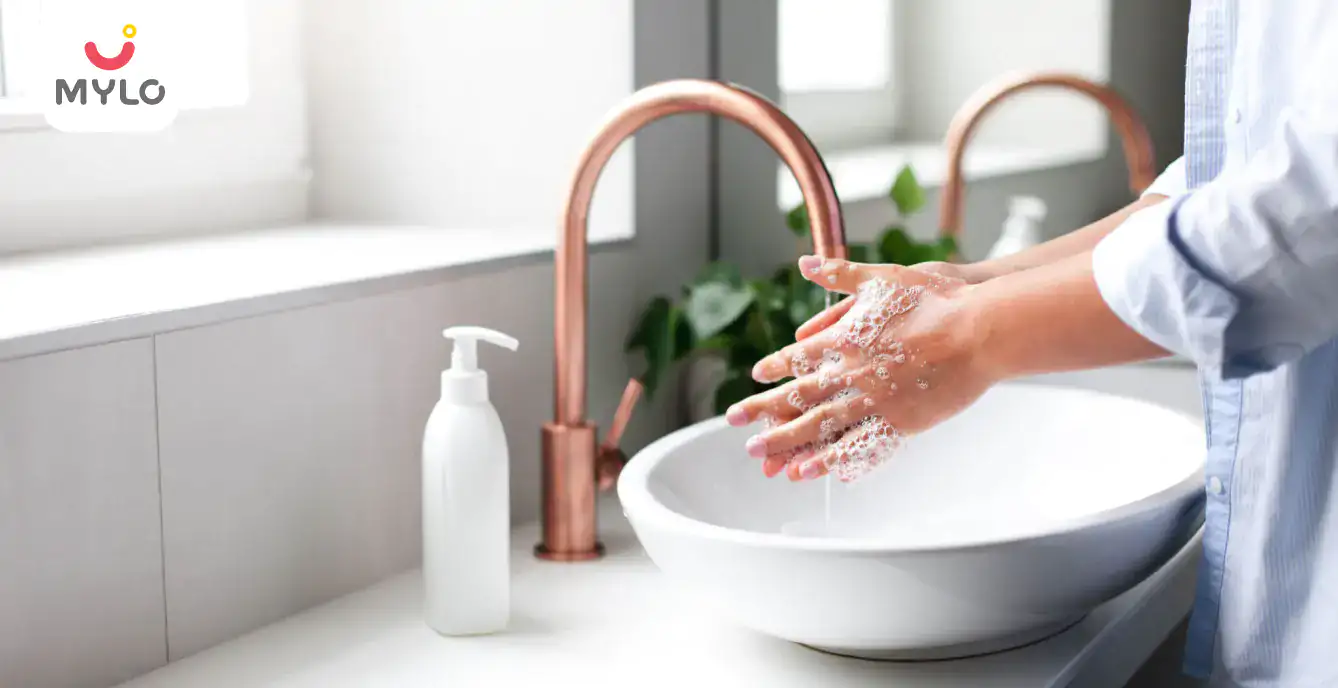
Caring for your Newborn
Is It Really Essential for People to Wash Their Hands Before Holding a Newborn?

TV & OTT
Top 10 Hollywood Movies on Hotstar
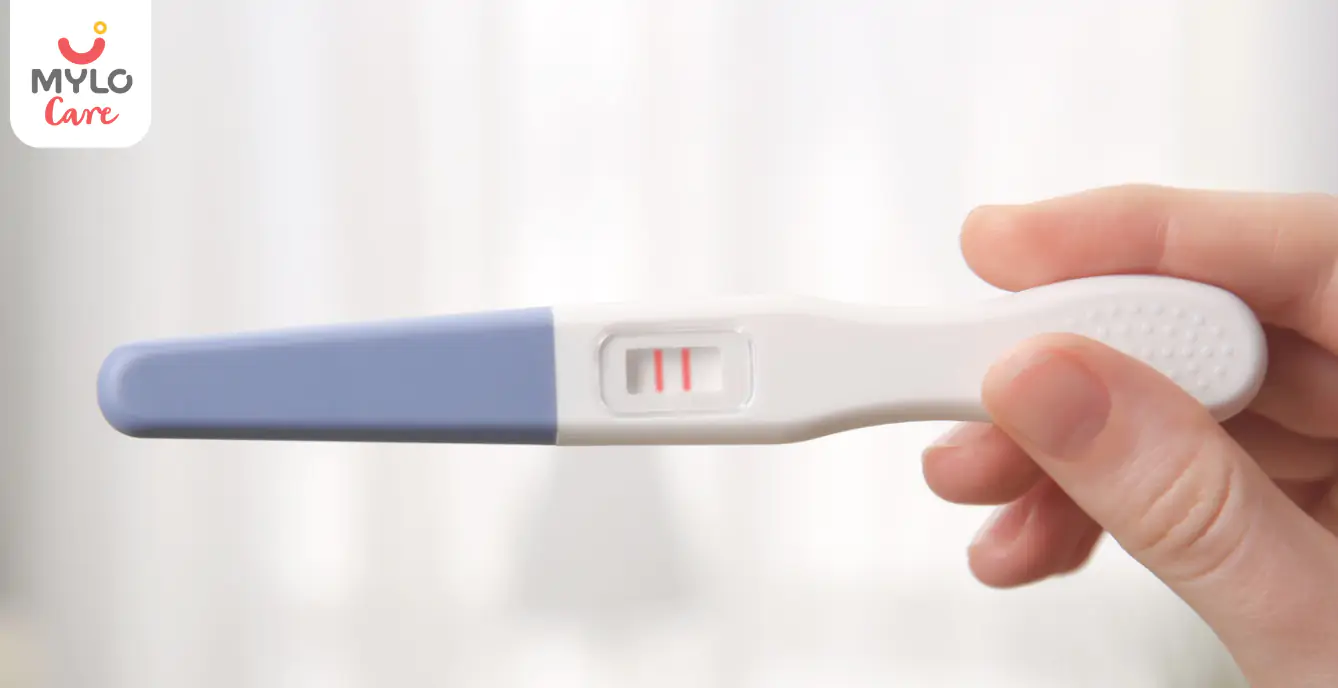
How Can You Easily Determine Using Seven Easy Homemade Remedies to Check if You’re Pregnant or Not?

TV & OTT
Best Crime Series On Amazon Prime

Linea Nigra
Everything You Need to Know About Linea Nigra, the Line Around Your Belly
- Know Why Your Doctor May Change Your Due Date During Pregnancy
- 6 Ways to Protect Your Baby During Cold Season
- Are You Aware of These Warning Signs That You Should Be Careful of During Your First Trimester?
- Understanding Baby Sleep: 4-6 Months
- How to Take Care of Your Little One When He/She Is Arriving Early? What are Some Causes of Preterm Birth?
- When Should Parents Introduce Water to Their Little Ones? What Should Be the Accurate Quantity and How to Feed Your Baby?
- What to Do if My Toddler is Underweight?
- Toilet Training Your Child
- When Can I Start Giving My Baby Ice Cream?
- Amazing Ways to Help Your Toddler Talk
- Why Does My Child Seem So Frustrated?
- 10 Best Underrated Shows on Amazon Prime
- 10 Most Watched Amazing Amazon Prime Series
- 10 best movies to watch on amazon prime


AWARDS AND RECOGNITION

Mylo wins Forbes D2C Disruptor award

Mylo wins The Economic Times Promising Brands 2022
AS SEEN IN

- Mylo Care: Effective and science-backed personal care and wellness solutions for a joyful you.
- Mylo Baby: Science-backed, gentle and effective personal care & hygiene range for your little one.
- Mylo Community: Trusted and empathetic community of 10mn+ parents and experts.
Product Categories
baby carrier | baby soap | baby wipes | stretch marks cream | baby cream | baby shampoo | baby massage oil | baby hair oil | stretch marks oil | baby body wash | baby powder | baby lotion | diaper rash cream | newborn diapers | teether | baby kajal | baby diapers | cloth diapers |



